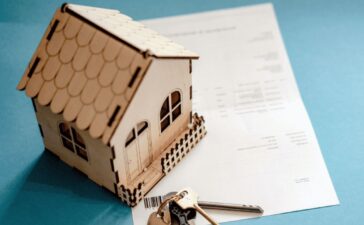You all must have heard a lot about the triple net lease- but what may be confused as to what is it exactly? If you are looking for a long term lease of at least ten years in a freestanding commercial building, you are likely to come across a NNN lease.
Basically, in simple terms, a triple net lease is a lease structure where the proprietor is not liable for paying any of the operating expenses. Instead, it is the occupant who is responsible for paying all such expenses.
This is more like a simplified version of buying a house, except that the house is not completely yours forever. Under this lease, a tenant is the one responsible for insurance, real estate taxes, and the majority of the maintenance fees.
Let us take a deep dive and see more into these NNN Leases. There are a couple of misconceptions regarding the triple net leases. The rent one has to pay is usually lower with this particular lease. Properties with lower rent rates are easier to find, so it is important to look beyond the rent rates.
Make sure you are aware of all the pros and cons before signing a NNN lease contract.
Pros
- Reduced Rent
Since the occupant pays for all the property-related expenses, the rent is typically lower. As discussed earlier, the gross rent paid by the occupants is comparatively lower than the other types of lease agreements.
- Increased Control
Maintenance and repair costs are your responsibility as a tenant in a NNN lease agreement. You get to choose what contractor to hire and which repairs you want to complete. This type of lease gives you more control in this matter. You also get control over the utility expenses.
- Prime Location
Properties with NNN leases are typically situated in high-value areas with more exposure and traffic. Your business can benefit from its presence in a prime location by generating high revenues.
- Tax Benefits
You are responsible for the property taxes. You can build these costs into your business operating expenses to gain tax benefits.
- Consistent Operating Expenses
Knowing your upfront costs, you can optimize such expenses.
Cons
- High Costs
Costs related to the property are to be paid no matter what. Costs like tax rates, insurance premiums, and maintenance costs are not fixed. They all gradually increase with the persistent use of property and inflation.
- Responsibilities
Tenants have to go through the hassle of paying all the bills on time. It is not easy to stay within the set operating budget.
- Property Damage
In case of property damage, the tenant is responsible to arrange all repairs. These costs may not be covered by insurance completely.
- Base Rent
The real cost of the lease can differ from the initial estimate of the base rent. It can be massively higher than that.
A NNN lease might seem the most advantageous to both parties compared to other types of net lease agreements. However, the fact that it can backfire in the most expensive way should not be ignored.





